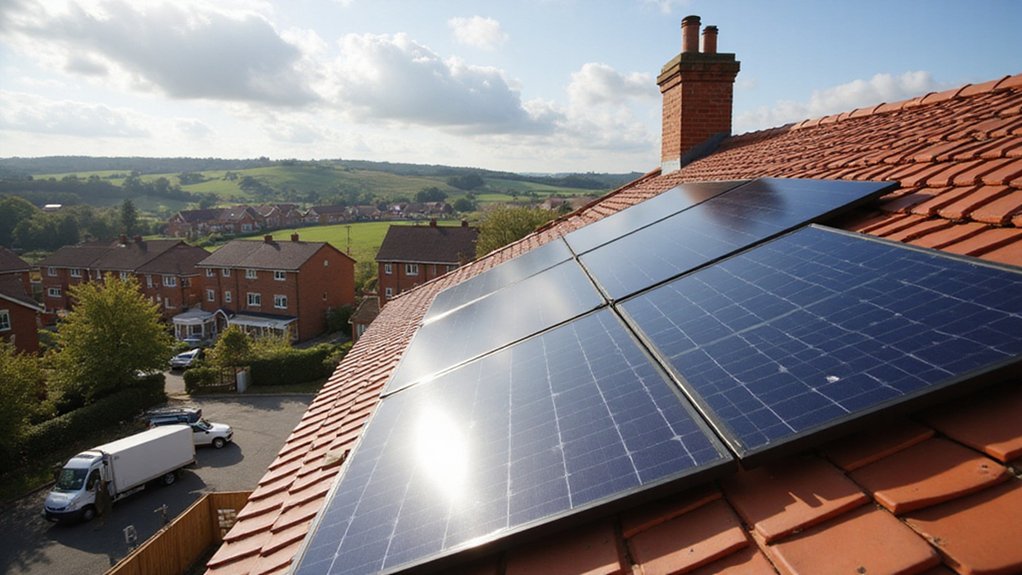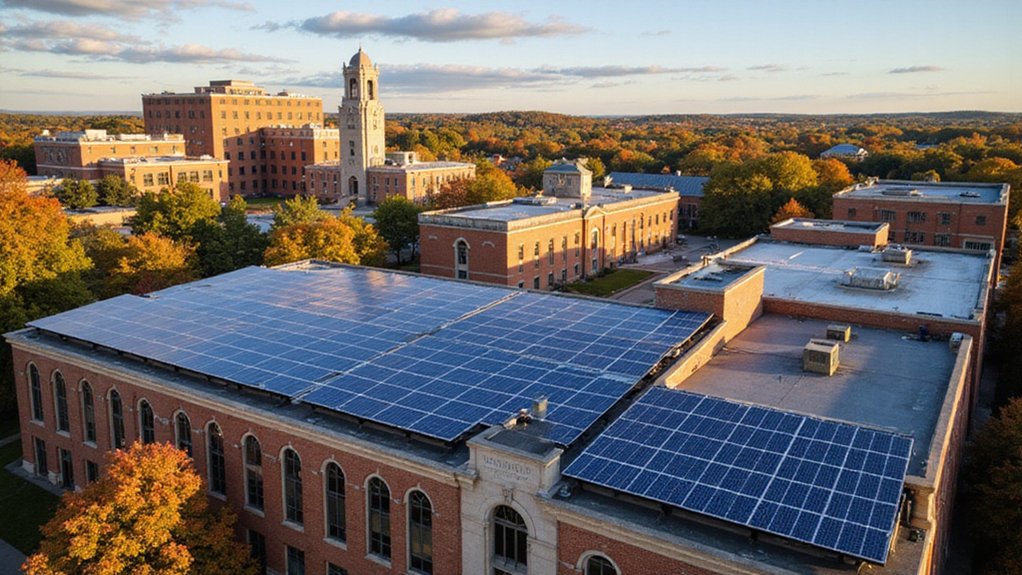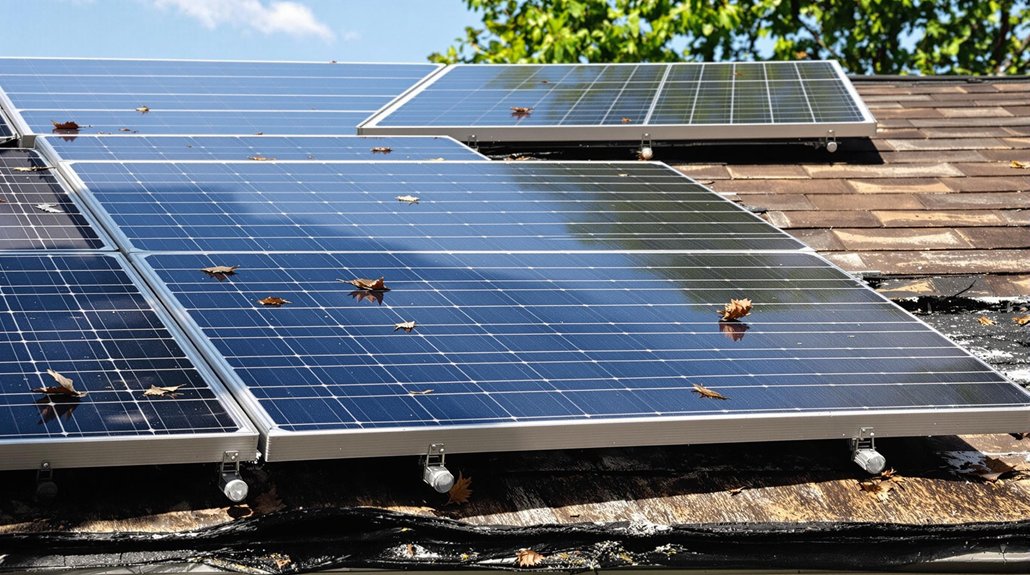England’s government will require solar panels on almost all new homes from 2027. The mandate affects 99% of new builds, with installation costs around £3,300-£4,000 per home. Homeowners can expect to save over £440 annually on energy bills. While 42% of new houses already have solar panels, critics call the policy an “ideological crusade.” The initiative supports the government’s goals to decarbonize the grid and build 1.5 million new homes. More details reveal the full impact.
In a bold move toward renewable energy, England’s government will require solar panels on nearly all new homes built from 2027 onward. The mandate will affect 99% of new-build homes, with just 1% receiving exemptions. This policy is part of the government’s wider push to reach net zero emissions and follows the Future Homes Standard.
The new rules will be legally enforced and will require most homebuilders to install solar panels covering about 40% of a building’s ground area on 80% of new homes. The remaining 19% will need to have solar panels too, but in slightly smaller amounts.
For homeowners, the mandate comes with both costs and savings. Installing solar panels will add around £3,300 to the price of semi-detached or terraced houses, while detached homes will see costs of about £4,000. However, households are expected to save more than £440 per year on energy bills, with some reports suggesting savings could reach £1,000 annually. The initiative has received support from Greenpeace, which described it as a common-sense decision for reducing carbon emissions. This policy follows the global trend where the cost of solar has decreased by 90% over the past decade, making it increasingly affordable.
The solar industry appears ready for this change. Data shows 42% of new houses were already fitted with solar panels in the fourth quarter of 2024, up from just 13% a year earlier. This growth has been driven by existing energy efficiency rules known as ‘Part L’ that have been in effect since June 2023.
Not everyone supports the mandate. Critics from organizations like the Institute of Economic Affairs have called it an “ideological crusade,” arguing that homebuyers should decide what goes on their homes. Some experts have also raised concerns about potential oversupply issues.
The policy supports the government’s pledge to decarbonize the energy grid by the end of the decade and aligns with its commitment to build 1.5 million new homes during the current parliament. The timing of the announcement has been particularly controversial amid recent European blackout events. Energy Secretary Ed Miliband is also working to reduce dependence on solar panels imported from China.
The mandate will be incorporated into the next iteration of Building Regulations, making solar panels a standard feature of England’s future housing landscape.
References
- https://www.the-independent.com/news/uk/politics/solar-miliband-net-zero-panels-b2742820.html
- https://www.cityam.com/solar-panels-must-be-fitted-on-all-new-homes-from-2027-in-net-zero-push/
- https://www.businessgreen.com/news/4413004/common-sense-decision-government-reportedly-preparing-solar-panels-mandatory-homes-england
- https://www.endsreport.com/article/1916342/government-to-mandate-solar-panels-new-homes
- https://www.theecoexperts.co.uk/news/new-homes-solar-power








